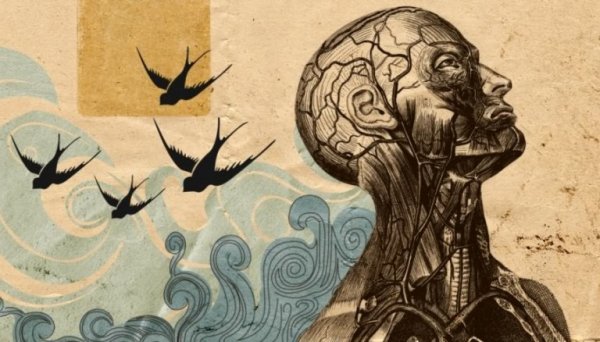Carl Rogers' Humanist Psychology


Written and verified by the psychologist Sergio De Dios González
There are plenty of theories of personality in psychology. But it’s worth pointing out that they all have common core concepts, points where their ideas and focuses intersect.
And if you just do a small review of that whole variety of interesting theories, Carl Rogers will stand out. His theory and his positive vision brought a necessary change to psychotherapy.
The passive, deterministic vision emphasized so much by psychoanalysis and behavioralism got left behind by the humanist psychology of the man people see as the most influential psychotherapist of all time. What he talked about instead was human freedom.
He emphasized our ability to move forward and build a better world. He encouraged us to take responsibility for ourselves and open ourselves up to experience. He thought we could do this with undirected therapy that helps us gain more self-knowledge.
Carl Rogers’ humanist psychology actually had a very important, concrete goal: to make it easier to help. In fact, after World War II, he himself offered to give psychological help to all the soldiers who became crippled or traumatized during the war.
Back then the only kind of treatment those young men got was from doctors. No one in the United States had gone beyond physical injuries to analyze and treat the emotional kind too.
Not long after, Japan invited him to teach their psychologists his techniques, his way of helping. Almost without realizing it, Rogers created a new kind of psychotherapy that dazzled the whole world. This even lead him to be nominated for a Nobel Peace Prize.
Carl Rogers’ Humanist Psychology
Carl Rogers’ own life reflects one of the most well-known parts of his theory. This principle was self-actualization and a constant effort to fulfill ourselves, to discover more and more of what defines us while we chase after our goals.
As strange as it might seem, he himself started out with a very different career path than psychology. He started out in agricultural science.
Later on, he took an interest in the study of Eastern and Western religions. Then he graduated with degrees in History and Theology. But after that, he felt pulled towards the world of psychopedagogy and the complex process involved in becoming who we are.
And that was when he learned the theories of one of his personal heroes, John Dewey. What he learned from Dewey was that education shouldn’t just happen on an intellectual level, you also have to be open to experience.
So, also influenced by existentialism, he started to publish books, studies, and research until he got a job as a professor of clinical psychology. It also didn’t take him long to become the cornerstone of humanist psychology thanks to his client-centered therapy.
He left behind the idea of a “patient” as a passive subject. Instead, he showed us that people could become experts in their own personal growth and life path.
The word “client” showed up for the first time in his humanist psychology for an apparent reason. It was because the word put people on equal terms with their therapist (unlike psychoanalysis).
He wanted to show his absolute belief that people could change positively, build psychological strength, knock down defense mechanisms, and give shape to the fundamental impulse they could use to fulfill themselves.
Key points in Carl Rogers’ humanist psychology
There’s one question you’ve probably all asked yourself at some point. “Why is this happening to me?” The first thing Carl Rogers’ humanist psychology would do is give you genuine empathy.
It would try to connect with the client and take an interest in the situation they’re going through. It’s a meeting point between one human being and another, with one common goal. The point is to explore your true “I” so you can make more satisfying decisions.
Now we’ll look at some of the most important points from Carl Rogers’ humanist psychology.
The need to develop a functional personality
- We all have our goals within our reach. Finding a place of well-being and developing ourselves to our fullest potential are within our reach too. But Rogers said that most of us look at those things as an unattainable ideal or a total fantasy. Well-being is more than just a goal, though. It’s a constant process that you have to put effort into in the here and now.
- To develop a fully functional personality, you have to be open to experience. You can’t only accept your positive emotions, you also have to face up to your negative ones instead of running away from them.
- You have to give your life a meaning. We’re all responsible for ourselves. That’s why it’s so necessary to have an active, receptive, and creative attitude so you can find a satisfactory meaning within your reality.
- And another key element in Carl Rogers’ humanist psychology is self-confidence. This priceless possession is so often in danger of going extinct inside us. So you have to learn how to trust in your own standards and be brave enough to make big decisions and worry less about what other people will say or think.
- Moments of crisis are times when you can look for, sense, and take steps toward a new opportunity. This is definitely an essential idea for your personal growth too.

Understanding Carl Rogers’ humanist psychology better
Lastly, there’s one aspect that’s definitely worth thinking about to get a much better understanding of Carl Rogers’ humanist psychology. It’s what always set him apart from other therapists and also made him one of the most influential psychologists.
He always chose to focus on the person and not the problem.
He was the man who looked at his clients from an authentic place. He never judged them, never pushed any strategies on them, and never confronted them. The goal of his therapy was to listen, make it easier for them to recognize their emotions, and help them define their own personality.
And that’s exactly why so many of his strategies don’t show up in instruction manuals, he didn’t have a clear methodology. But even today his psychological focus is still one of the best strategies for dealing with trauma or attachment issues.
Bibliography
Rogers, C. (1961). On Becoming a Person. Boston: Houghton Mifflin.
Rogers, C. (1977). A Personal Message from Carl Rogers. In Contributions to Client-Centered Therapy and the Person-Centered Approach. Herefordshire: PCCS Books.
Rogers, C. (1951). Client-centered therapy: Its current practice, implications and theory. London: Constable.
Rogers, C. (1959). A theory of therapy, personality and interpersonal relationships as developed in the client-centered framework. In (ed.) S. Koch, Psychology: A study of a science. Vol. 3: Formulations of the person and the social context. New York: McGraw Hill.
All cited sources were thoroughly reviewed by our team to ensure their quality, reliability, currency, and validity. The bibliography of this article was considered reliable and of academic or scientific accuracy.
- Lamoutte, E. M. C. (1989). El proceso educativo según Carl R. Rogers: la igualdad y formación de la persona. Revista interuniversitaria de formación del profesorado, (6), 599-603.
- Rogers, C. (2011). El proceso de convertirse en persona. Madrid: Paidós Ibérica.
- Rogers, C. (1989). La persona como centro. Barcelona: Herder.
- Rogers, C. (1951). Client-centered therapy: Its current practice, implications and theory. London: Constable.
- Rogers, C. (1959). A theory of therapy, personality and interpersonal relationships as developed in the client-centered framework. In (ed.) S. Koch, Psychology: A study of a science. Vol. 3: Formulations of the person and the social context. New York: McGraw Hill.
This text is provided for informational purposes only and does not replace consultation with a professional. If in doubt, consult your specialist.








